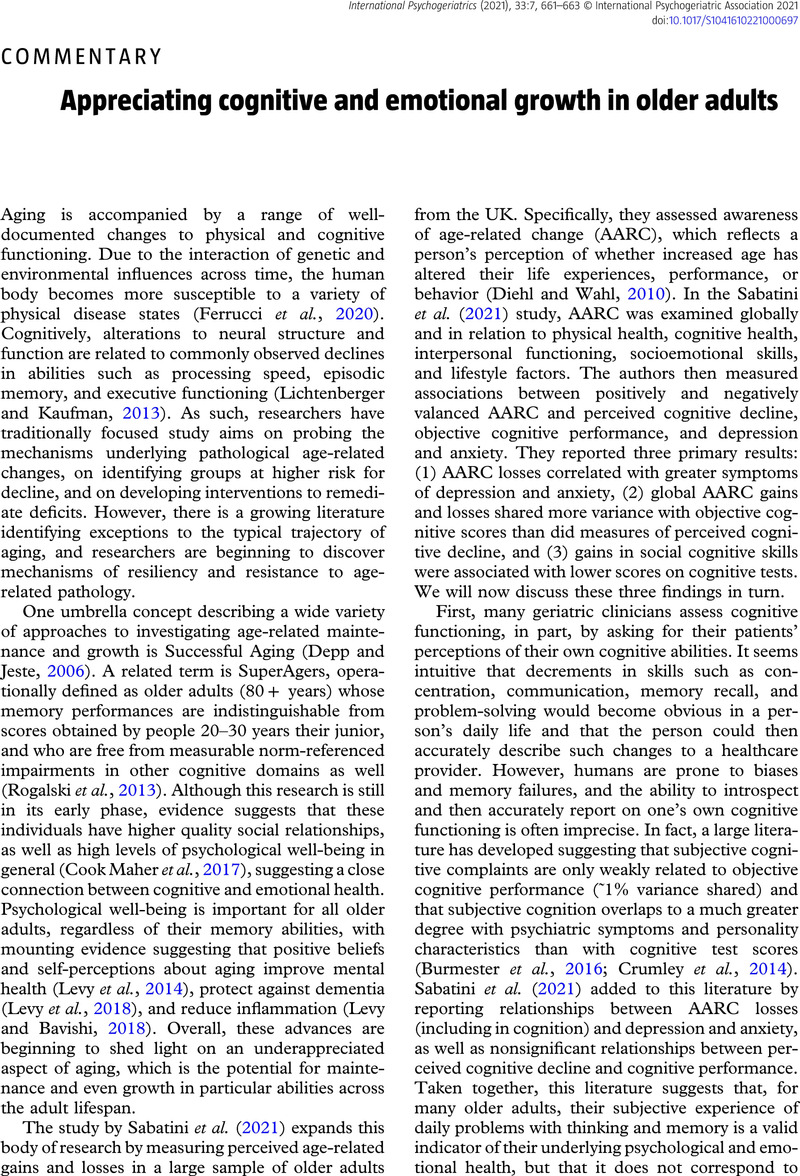Crossref Citations
This article has been cited by the following publications. This list is generated based on data provided by Crossref.
Facal, David
and
Mateos, Raimundo
2023.
Memory trajectories and critical windows for cognitive intervention.
International Psychogeriatrics,
Vol. 35,
Issue. 7,
p.
323.



